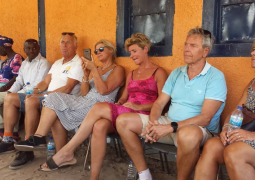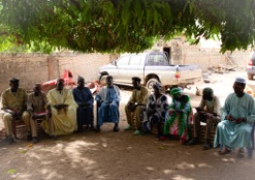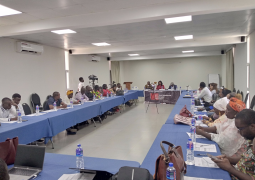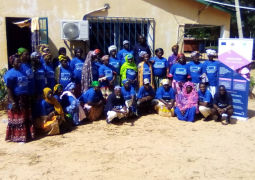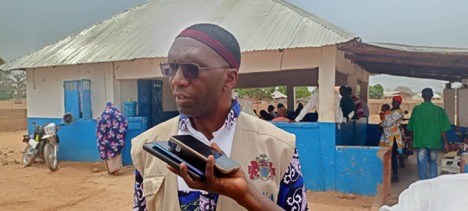
Malang N. Fofana was speaking to reporters in one of the training sites held at Kurau village, Sandu District in the Upper River Region in the ongoing implementation of a training program for beneficiaries of the Nafa programme on the Gambia RISE Project Community Structures.
The training is currently being implemented under the Gambia RISE project of the Social Behavioral Change Communication (SBCC) Tools and Materials.
The Gambia RISE project is jointly funded by the World Bank and The Gambia government with the aim to build a foundation for providing sustainable livelihoods to the poor and vulnerable households.
However, the IPC Networks training was being organized by NaNA and partners involved 802 communities, who are grouped into 160 training sites across the all the regions.
According to Fofana the Social Behavioral Change Communication (SBCC) program is trying to ensure that Nafa beneficiaries are informed, educated and communicated so as to adopt the desirable behaviors that will improve their health and livelihoods.
He disclosed that his Agency also expects that beneficiaries of the Nafa project to invest the cash transfer they are receiving into meaningful income generating ventures for self-sustenance after the elapsed of the project.
“The IPC training models include the basic project information, maternal and child nutrition, Positive Playful Parenting, gender-based violence, early child development, entrepreneurship and financial literacy and agriculture and climate change.”
To this end, Fofana described the IPC training as a significant and vibrant structure for NaNA, particularly in the delivery of the SBCC components of their work.
The role of the IPC, he went on, is also to go into their respective communities and engage with their people, particularly with the parents to encourage them to adopt the desirable behavior that stakeholders are promoting in their programs.
“We want to ensure that all the models are adequately treated during the training so that all the IPC Networks are grounded on all the models for effective delivery as they return home after the training,” he said.
Fofana further thanked their partners, particularly the World Bank for investing $92 million dollars grant into the Gambia RISE project, which he said, is trying to address human capital.


